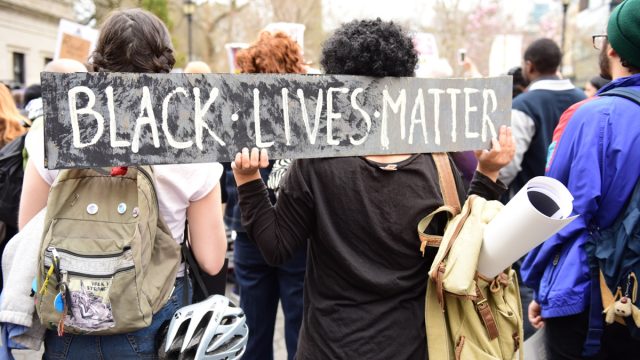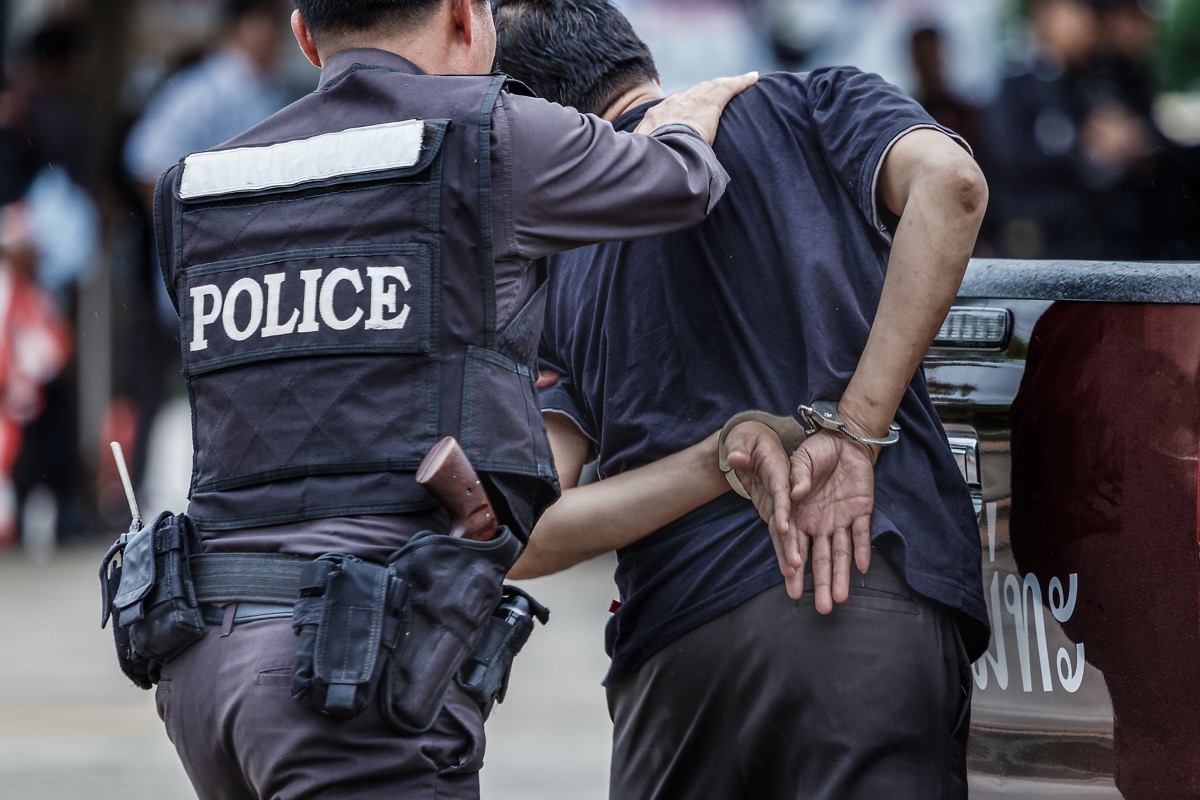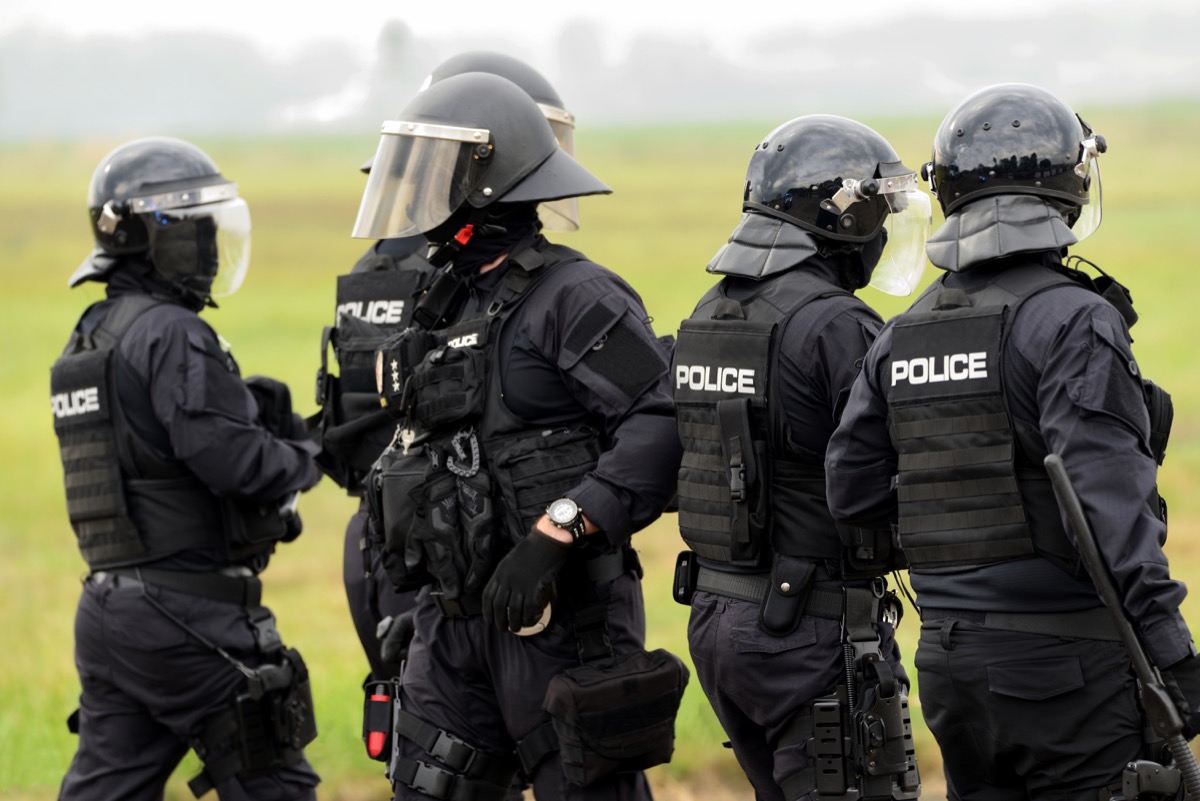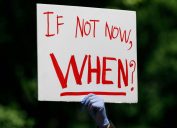8 Changes That Have Happened Since Black Lives Matter Protests Started
A lot of progress has been made during two weeks of protesting.

The protests following the murder of George Floyd on May 25 are still raging on as demonstrators continue to demand justice and racial equality. In just a couple of weeks, Black Lives Matter protests have drawn long overdue attention to systemic racism and invoked changes to long-standing policies that have allowed racism to function within the criminal justice system for centuries. In fact, just two weeks of protesting has created more change than we've seen in recent years. Here are eight changes that've come as a result of the Black Lives Matter protests so far. And if you're attending protests, check out The CDC Director Says This Is the One Thing Protestors Need to Do.
1
New York repealed a law that allows police disciplinary records to remain hidden from the public.

Many New York protesters called for a repeal of New York Civil Rights Law Section 50-A, which has kept police disciplinary records hidden from the public for over 40 years. On June 9, the New York State Legislature passed a bill to repeal 50-A. Repealing this law allows for more transparency between the public and police department in New York. To see why you should be careful with protest pictures, check out This Is Why Posting a Selfie From a Protest Is Dangerous.
2
Minneapolis City Council members announced that they intend to defund and dismantle the police department.

After days of sustained protests in Minneapolis—the city Floyd was murdered in—city council members made a bold announcement. Council President Lisa Bender told CNN, "We committed to dismantling policing as we know it in the city of Minneapolis and to rebuild with our community a new model of public safety that actually keeps our community safe." With nine guaranteed votes from council members, the motion is veto-proof.
3
The Dallas Police Department is making it an officer's duty to intervene in a case of excessive force.

Floyd died while Minneapolis officer Derek Chauvin pressed his knee into his neck, and three fellow officers (who have since been arrested) stood by and watched. As a result, Dallas Police Chief Reneé Hall is implementing a "duty to intervene" order, stating that officers must intervene if they see a fellow officer using excessive force. However, it remains to be seen what the consequences will be if an officer does not intervene.
4
The Los Angeles City Council plans to reallocate 8 percent of the LAPD's $1.9 billion budget.

Three Los Angeles City Council members—Nury Martinez, Herb Wesson, and Curren Price—filed a motion to cut up to $150 million of the Los Angeles Police Department's $1.86 billion budget for the upcoming fiscal year, according to CBS News. (That's just over 8 percent.) The motion asks that staff reallocate the money to "disadvantaged communities and communities of color." To see which celebs lost their jobs as a result of racism, check out 6 Celebrities Who Were Fired After Being Accused of Racism.
5
New Jersey has vowed to update its use of force guidelines.

Following statewide protests, New Jersey Attorney General Gurbir Grewal announced that the state will begin to update its guidelines surrounding police officers' use of force, according to NBC News. This overhaul would be the first adjustment to the state's guidelines in two decades. As part of reshaping the guidelines, Grewal seeks to require a streamlined statewide licensing program for all officers.
6
State lawmakers in Maryland announced major police reform, including banning violence and making disciplinary records public.

Maryland Senator William C. Smith Jr. proposed a "sweeping set of reforms, including banning violent police tactics, making disciplinary records public and ending the purchase of military equipment for officers," according to The Baltimore Sun. Following this proposal, Maryland House Delegates Speaker Adrienne A. Jones announced the formation of a bipartisan group of lawmakers who will review these proposed changes. They plan to create and pass significant reforms during the General Assembly's session in January.
7
The Denver Police Department is banning chokeholds and requiring officers to report when they point their gun at someone.

The Denver Police Department announced "changes to the department's use of force and body camera policies—including a ban on chokeholds," according to The Denver Post. Additionally, the department will also require officers to report to supervisors any time they point their gun at someone. And for some businesses to support during this difficult time, check out 17 Black-Owned Businesses You Can Support Online Right Now.
8
Nearly 20 monuments and statutes of confederate figures have been removed across 10 states.

Contentious monuments in states like Kentucky, Florida, Indiana, Alabama, Tennessee, Texas, and Virginia—and even in the United Kingdom—have been removed following protests, either by citizens or officials, according to CNN. From the Confederate Soldiers and Sailors Monuments in Birmingham, Alabama, and Indianapolis, Indiana, to a slave auction block in Fredericksburg, Virginia, many of the monuments have been a source of controversy for decades. The Robert E. Lee monument, pictured above in Richmond, Virginia, is also set to come down, along with many others. And if you want to educate yourself, check out 13 Documentaries About Race You Need to See If You Haven't Yet.





















